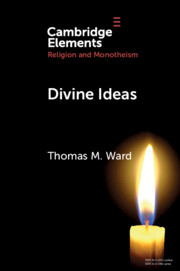Element contents
Divine Ideas
Published online by Cambridge University Press: 13 August 2020
Summary
- Type
- Element
- Information
- Online ISBN: 9781108876445Publisher: Cambridge University PressPrint publication: 03 September 2020
References
- 18
- Cited by



